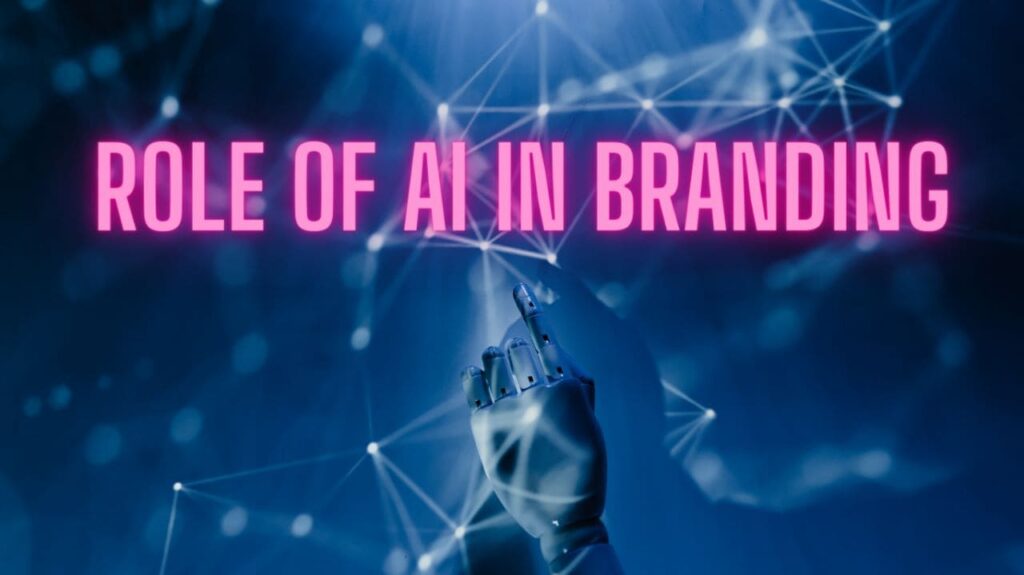Role of AI in Branding
In today’s digital era, where technology continues to advance at a rapid pace, artificial intelligence (AI) has emerged as a powerful tool across various industries. One such area where AI has made a significant impact is branding. AI-driven solutions are revolutionizing the way businesses approach branding strategies, enabling them to enhance customer experiences, streamline operations, and gain a competitive edge in the market. This article explores the role of AI in branding and how it is transforming the landscape of marketing and customer engagement.
Table of Contents
- Introduction to AI in Branding
- Personalized Customer Experiences
- Data-Driven Branding Insights
- Automated Content Creation
- Chatbots for Enhanced Customer Engagement
- Predictive Analytics for Targeted Marketing
- AI-Powered Voice and Image Recognition
- Social Media Monitoring and Sentiment Analysis
- Influencer Marketing Optimization
- Brand Protection and Fraud Detection
- Ethical Considerations of AI in Branding
- Integration of AI with Traditional Branding Strategies
- The Future of AI in Branding
- Conclusion
- FAQs (Frequently Asked Questions)
1. Introduction of AI in Branding
AI, with its ability to analyze vast amounts of data and derive meaningful insights, has opened up new possibilities for branding. It enables businesses to better understand their target audience, create personalized experiences and optimize marketing strategies. By leveraging AI technology, companies can gain a deeper understanding of their brand perception, consumer behavior and market trends.
2. Personalized customer experiences
One of the key benefits of AI in branding is its ability to deliver personalized customer experiences. AI-powered algorithms can analyze customer data, such as browsing history, purchasing behavior and preferences to tailor content, recommendations and offers to individual customers. This level of personalization increases customer satisfaction, builds brand loyalty and increases conversion rates.
3. Data-driven branding insights
AI enables brands to leverage data in unprecedented ways. Using machine learning algorithms, businesses can analyze customer data and identify patterns, trends and correlations. These insights help brands understand customer preferences, optimize marketing campaigns and make data-driven decisions to improve their branding strategies.
4. Automated content creation
AI has the potential to automate content creation, saving time and resources for businesses. Natural language generation (NLG) algorithms can generate high-quality, relevant content for various marketing channels, including blog posts, social media updates and product descriptions. This automation frees up human resources to focus on more strategic aspects of branding.
5. Chatbots for enhanced customer engagement
AI-powered chatbots have become increasingly popular in the branding landscape. These virtual assistants can connect with customers in real time, provide instant support, answer questions and guide them through the purchase process. Chatbots increase customer engagement, ensure round-the-clock availability and improve overall brand perception.
6. Predictive analytics for targeted marketing
AI-powered predictive analytics enables brands to anticipate customer needs and behavior. By analyzing historical data and using machine learning algorithms, businesses can identify patterns and predict future trends. This helps in targeted marketing, allowing brands to deliver the right message to the right audience at the right time.
7. AI-powered voice and image recognition
Voice and image recognition technologies powered by AI are transforming branding experiences. Voice assistants like Amazon Alexa and Google Assistant enable users to interact with brands through voice commands, opening new avenues for personal engagement. Image recognition technology enables brands to analyze user-generated content and identify brand-related images on social media platforms. These AI-powered capabilities allow brands to engage with their audiences in innovative ways and provide seamless brand experiences.
8. Social media monitoring and sentiment analysis
AI plays a crucial role in monitoring social media platforms for brand mentions and sentiment analysis. AI algorithms can analyze social media conversations and detect brand sentiment, whether positive, negative or neutral. This valuable information helps brands understand how their products or services are perceived by audiences and make necessary adjustments to their branding strategies.
9. Influencer Marketing Optimization
Influencer marketing has become a popular strategy for brands to effectively reach their target audience. AI tools can help optimize influencer selection by analyzing data on influencers’ reach, engagement and relevance to brands. By leveraging AI, brands can identify the most appropriate influencers for their campaigns, ensuring higher brand visibility, authenticity and engagement with the target market.
10. Brand Protection and Fraud Detection
AI technologies play an important role in brand protection and fraud detection. AI-powered algorithms can monitor online platforms, identify counterfeit products and protect brands’ intellectual property rights. In addition, AI can detect and prevent fraudulent activities such as fake reviews, click fraud and brand impersonation. By leveraging AI for brand protection, businesses can protect their reputation and maintain customer trust.
11. Ethical Aspects of AI in Branding
While AI offers numerous benefits in branding, there are ethical considerations that must be considered. Brands must ensure transparency in AI-driven processes and clearly communicate when AI is involved in customer interactions. Respecting user privacy and following data protection regulations is important to maintain trust with customers. Brands should also ensure that AI algorithms are free from bias and promote inclusion.
12. Integration of AI with traditional branding strategies
AI should be seen as a complement to traditional branding strategies rather than a replacement. By integrating AI with existing branding efforts, businesses can leverage its capabilities to enhance customer experiences, gain valuable insights, and automate repetitive tasks. Successful integration requires a thoughtful approach, where AI augments human creativity and strategic thinking in branding initiatives.
13. Future of AI in Branding
The role of AI in branding is set to expand further in the future. As technology advances, AI will continue to refine and personalize customer experiences, provide advanced analytics, and unlock new opportunities for brand engagement. With the increasing availability of data and advancements in AI algorithms, businesses that embrace AI in their branding strategy will gain a competitive edge in an ever-evolving market landscape.
14. Conclusion
AI has changed the branding landscape, revolutionizing how businesses engage with their audiences, analyze data and optimize marketing strategies. From personalized customer experiences to automated content creation and predictive analytics, AI offers a wide range of capabilities that increase brand visibility, engagement and loyalty. However, it is important for brands to approach AI integration ethically, ensuring transparency, privacy and inclusiveness in their AI-powered branding initiatives.
FAQs (Frequently Asked Questions)
How does AI enhance personalized customer experiences in branding?
AI enables brands to analyze customer data and deliver tailored experiences based on individual preferences and behavior. By leveraging AI algorithms, businesses can provide personalized recommendations, offers and content, fostering a deeper connection with customers.
Can AI automate content creation for branding purposes?
Yes, AI-powered natural language generation algorithms can automate content creation for various marketing channels. These algorithms can generate high-quality and relevant content, freeing up human resources to focus on strategic branding initiatives.
What role do chatbots play in increasing customer engagement for brands?
AI-powered chatbots can engage with customers in real time, provide instant support, answer questions and guide them through the buying process. Chatbots increase customer engagement, ensure round-the-clock availability and improve overall brand perception.
How can AI-powered predictive analytics benefit target marketing?
AI-powered predictive analytics analyzes historical data and identifies patterns and trends, enabling brands to anticipate customer needs and behavior. These valuable insights allow businesses to target their marketing efforts more effectively, delivering the right message to the right audience at the right time.
What ethical considerations should brands keep in mind when using AI in branding efforts?
Brands must prioritize transparency and communicate clearly when AI is involved in customer interactions. Respecting user privacy, complying with data protection regulations and removing biases in AI algorithms are important to maintaining trust with consumers and promoting ethical AI practices.

